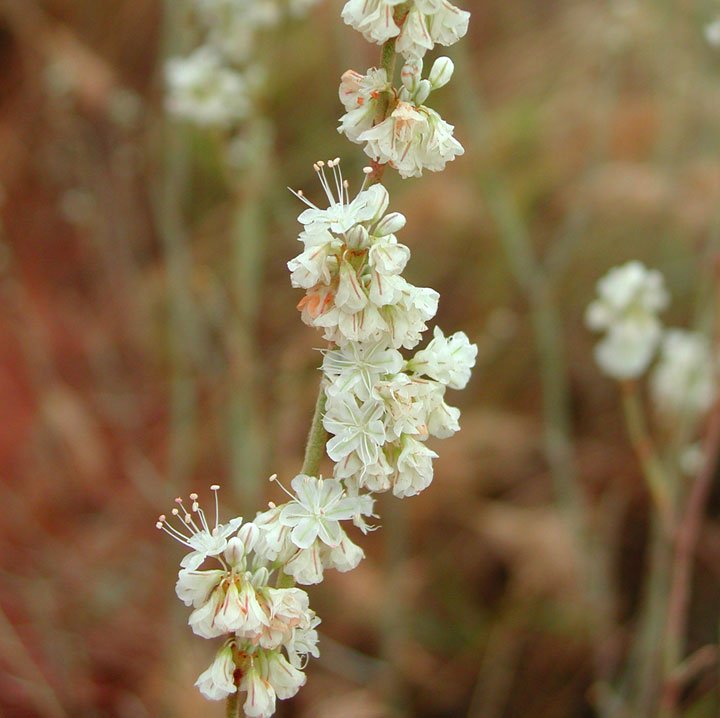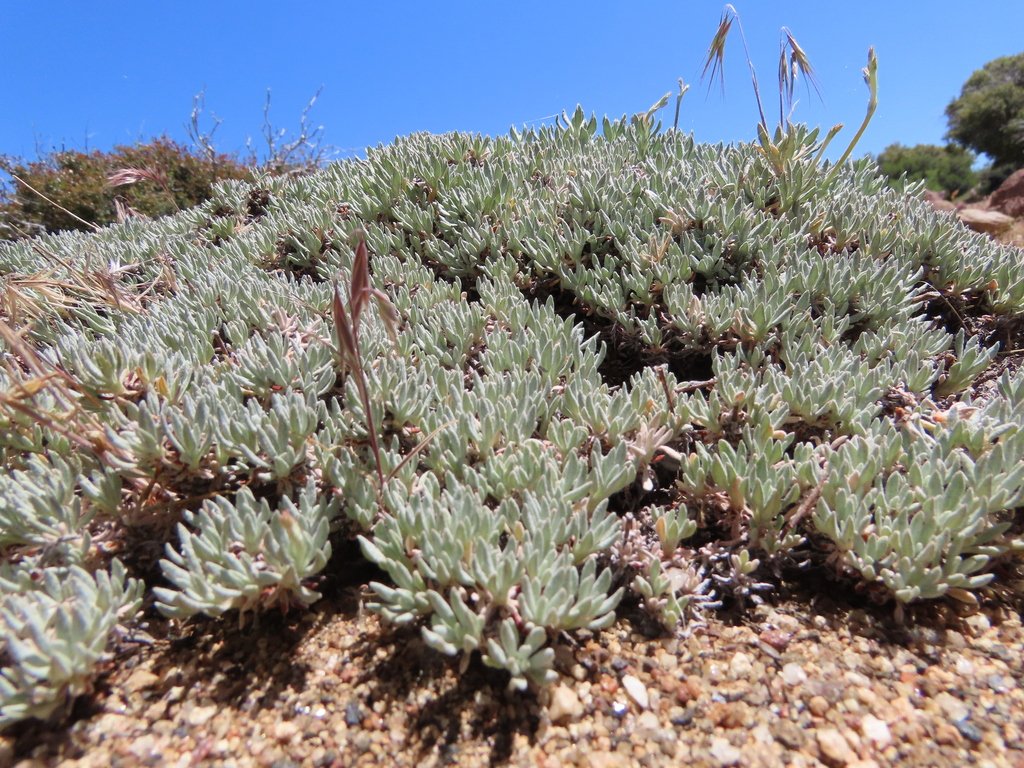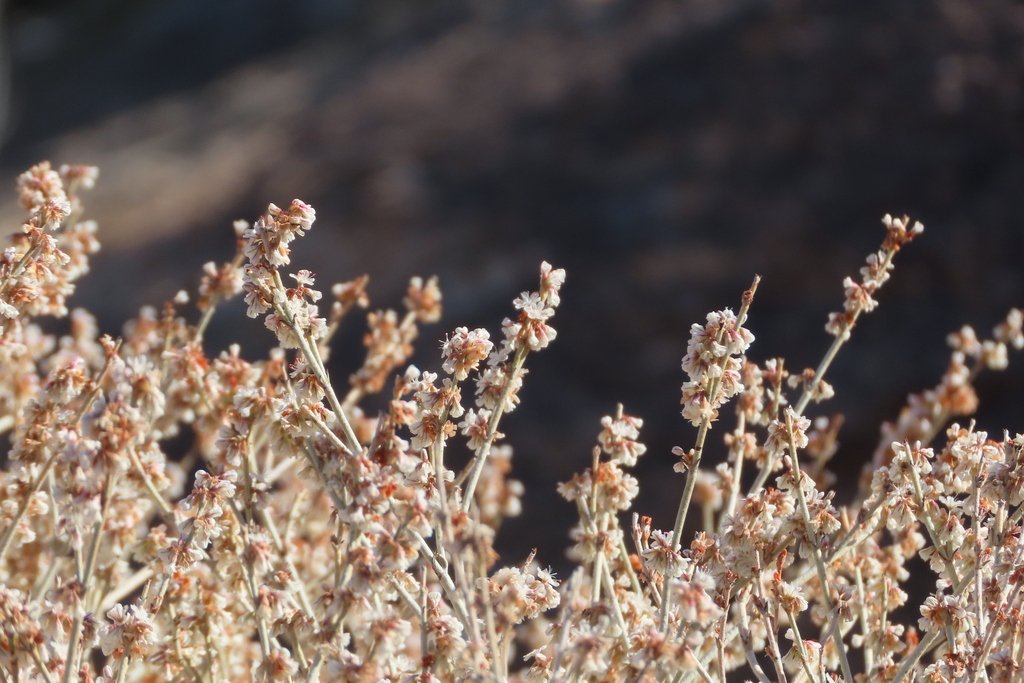Wright’s Buckwheat
Eriogonum wrightii
Family: Polygonaceae
Perennial subshrub, growing about 1.5’ high and spreading about 2’ with silvery foliage. areas. Wiry flower stalks bloom summer into fall with nectar-rich flowers.
Full to part sun, moderate to low water with good drainage, hardy to at least 0°F. This plant often acts like an annual or short-lived perennial in really dry/cold
This buckwheat is a larval food plant for the following butterflies:
Southwestern Azure (Celastrina echo ssp. cinerea)
Mexican Metalmark (Apodemia mejicanus)
Numerous insects use the nectar-rich flowers
Photo by quandary on iNaturalist
Eriogonum wrightii on SEINET
Eriogonum is from the Greek erion, wool, and gony, knee, alluding to the hairy nodes of the first species described, E. tomentosum; wrightii is named for William Greenwood Wright (1831-1912) a California lepidopterist.
Found in dry, rocky soils on flats and slopes, from 3,000-7,000 ft. in California, Nevada, Arizona, southern Utah, New Mexico, southern Texas; south into northern Mexico.
There are 9 recognized varieties within the larger distribution of this species, but two varieties are in Arizona and New Mexico: var. nodosum and var. wrightii.
Var. nodosum is mostly found in the low deserts of southwestern Arizona and southeastern California, and can be told apart by gray-tomentose flowering stems and branches. Var. wrightii is found from southeast California to west Texas and has white-tomentose stems.

Detail on the inflorescence, photo by Max Licher, SEINET

Plants before the flowers emerge, photo by quandary on iNaturalist

